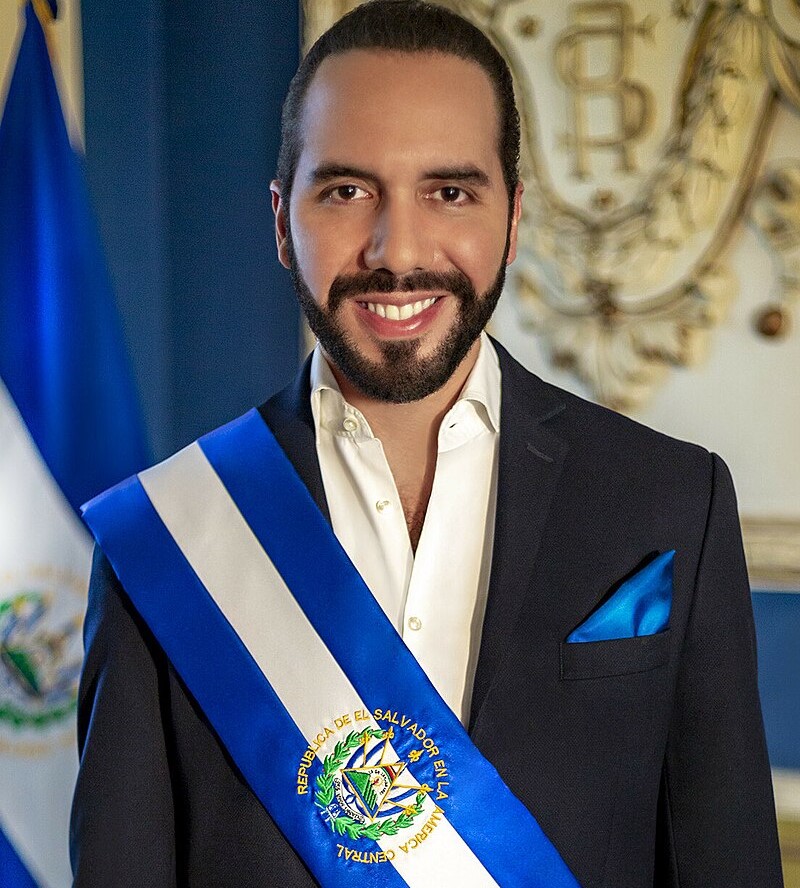Freedom via Authoritarianism? Have Bukele’s Reforms Improved El Salvador?
Cyrus Gazdar (*)

Toronto, February 14.–Following his party’s landslide election win in 2021, Nayib Bukele had for the first time in El Salvador’s history the ability to completely govern without interference from other parties. He used this unprecedented level of control to enact sweeping reforms that simultaneously dealt with several long-standing, systemic issues, as well as consolidate power into the executive branch, dealing blows to El Salvador’s democratic institutions in the process. El Salvador is the exception in this respect, as other Central and Latin American countries who generally employ mano dura (firm hand) policies, the former does not get resolved and the latter worsens. This presents us with a unique opportunity to study this case and understand how this situation came to be, and what concerns for the future may look like.
The state of El Salvador for several decades has been a weak one. Its governments had been unable to prevent the rise and domination of gangs and other violent groups. In a country of 6.5 million people, around 30,000 people —including youth— were part of maras gangs. The existence of these groups laid largely on the second issue of widespread corruption within many of El Salvador’s institutions. The corruption and lack of gang control also set out a third problem— that being an inability to enact successful policies, such as El Salvador’s anti-gang reforms in 2004-2005. The end product of these three problems was rampant violent crime and high amounts of emigration to other countries, especially the United States.
It would therefore make sense that the bulk of Bukele’s reforms would be to target these three major problems. On the 26 of March 2022, he declared a “War on Crime,” which consisted of three sweeping reforms: the formal suspension of constitutional rights; mass arrests; and punitive legal reforms. The effects of these reforms were seen very quickly. Firstly, corruption perception had dropped to its lowest, and people had more trust in their public instructions. Secondly, homicides had dropped to a historical low and now sits only behind Canada as the country with the least in the Western hemisphere. These wins were celebrated by Bukele with a bombastic speech to the United Nations as well as several posts on various social media platforms. While the statistics are impressive, they do not reveal the whole story, and cracks still exist that these reforms have not been able to resolve as of yet.
While corruption perception had dropped to a record low, the government’s actual level of corruption control remains very low and has stayed in its same fluctuation pattern for over a decade. While homicides may be at a historic low, other crimes, such as burglaries and thefts have risen, and victimization rates have remained on the same downward trend since 2016. These indicate that while the reforms may have been successful in some regards, it still lacks several in others. An area where this may show is gendered crime, as women face high levels of sexual and psychological violence. However, it is possible that the reforms were not set out to deal with this issue, as these crimes may be unrelated to gang violence and can be attributed to other factors such as household abuse. Nevertheless, many of the issues that existed before the reforms remain.
The reforms also came with another cost— that being the strength and legitimacy of El Salvador’s democratic institutions. The suspension of constitutional rights as a part of the war on crime had resulted in mass incarceration, with today roughly 1 percent of the total El Salvadorian population arrested, including innocent civilians. He also employed several maneuvers that are indicators of authoritarian behaviour in ways that deviate from strictly just anti-crime policies. Populism was a common theme, rejecting democratic conventions, delegitimizing political opponents, encouraging mob violence against political opposition, and attacking civil liberties and the media; characteristics of populist politics. Nevertheless, the widespread discontent with the prior political systems in El Salvador resulted in Bukele riding a huge wave of popularity both domestically and internationally. Currently, he sits at an approval rating of 91.3 percent, making him more popular than other leaders in the West like Joe Biden and Justin Trudeau.
Bukele’s process of democratic erosion and mass incarceration has brought in critiques from a number of groups. One of these groups is the think tank Freedom House, which criticized El Salvador’s government for prevailing corruption, democratic backsliding, attacks against journalists, and other infringements of liberal norms. The United Nations has also laid its concerns about attacks on human rights, mistreatment of journalists, and the prolonged state of emergency. Concerns such as these are generally blown off and Bukele’s popularity remains extremely high, and is also respected outside of El Salvador, such as when he gave a speech at the Republican National Convention this year.
While Bukele reforms were effective in drastically lowering homicides and gang activity, passing successful legislation, and boosting public support for the government, they still lacked in many areas, and widespread issues such as corruption still exist today. There are also now growing calls from liberal and international organizations on the situation that is undergoing in the small Central American country. The reforms are still only a few years old, and the future for El Salvador is still a fuzzy one, but the outcome can either result in a new view of the historically unsuccessful mano dura policies or push El Salvador into the group of states that have backslid into authoritarianism, a group that has been growing over the past several decades.
(*) Student of Political Science. University of Toronto
